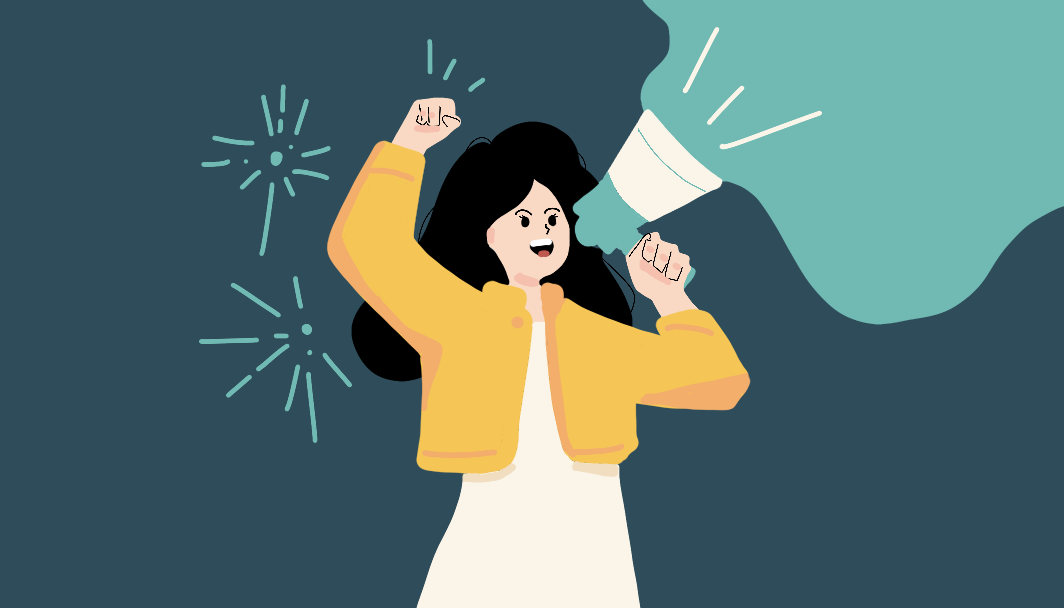Have you ever considered joining a participatory body or a student body of the University? Please do – make sure that you create the community that you want for yourself and others.
Where are you at this University? Do you see yourself as part of the community of Erasmians? I know – it is a weird question, especially after we have experienced a full year of not being able to go consistently to campus, to meet with colleagues, friends, teachers and all the other people that make the University. But, do you see yourself there? Do you feel that you are making a mark in your own education and hence in your own future?
In the last few months, when I ask myself what has kept me (more or less) sane, the response is always related to a certain feeling of belonging. Of course, belonging to my small Rotterdamse familie, but also beyond that. This year, I’ve missed yet also enjoyed more than ever meeting with family, friends, my colleagues, and (seldomly but happily) with my students. I realized how much I find their voices indispensable to understand my world and my desire to make sure it is a much more livable place.
In the middle of this unique type of isolation, this year also allowed me to see some people and the world around me differently. With pleasure and joyful surprise, I’ve also seen some of my students and colleagues revolt and discuss about what they want and don’t want for their future. I’ve considered myself blessed to be alive and active in a moment where more people, minorities and largely underrepresented majorities, have chosen to find their voice and turn to the streets, social media and also towards formal institutions in order to educate themselves and others, to find allies and to change the world. You can name your cause: from a more inclusive, intersectional view of society, to taking greater care for our planet, passing by calling out abusive and colonial attitudes – this is a golden moment for protest, participation, and expression.
Taking the streets has been useful, we have seen, but we have also been witnesses to the importance of changing the institutions from within. Without action and voice in the spaces of power, many of the concerns that we have will not become part of the agenda. And here is where I would like to call you to become part of the University in a different way – by participating in the bodies that are already there, open for all the voices to be heard.
I must confess that I don’t really believe that the University is an institution that provides for the most healthy or inclusive development most of the time. I know, you know, we all know, that a hierarchical place like this can be a breeding ground for many kinds of agendas, many of which revolve over established power structures, and are not so much about well-being, inclusion or representation. If we would like to talk about the University as a space of growth, we need to recover it as a place for rebellion and doubt, for discussion and healthy debate.
During this month of April, students and staff alike are being called to present themselves as candidates for the University Council and Faculty Councils at our University. I wouldn’t be very surprised if you have never heard about these bodies – they are supposed to be the checks, the balances and the guarantors of participation at the University but are kept in a quiet sphere. In both Councils, students and staff together have the opportunity to discuss and question management and executive decisions, as well as to propose new policies or ways of doing. Those opportunities are only in the hands of those who know where to find them – many times, a not very diverse group.
I have had the opportunity in the last years to be a member of both the University and the Faculty Council and now, more than ever, I see the tremendous challenge and importance to have a diverse representation. The voice of students and staff in those Councils should at least aim to mirror the diversity of opinions and life stories at our classrooms, to imagine decisions that are fair and relevant for everyone.
I dare you to challenge the idea that structures of power cannot be upset from the inside – joining the Councils is a unique opportunity for your personal growth, but also for bringing the topics that are close to your heart to the forefront. For me, these years have been a wild and unique ride, and even though I know it is tiring, I still have confidence in the possibilities of dialogue and debate. Dare yourself to shape the University by joining these bodies. I will be more than happy to give you any extra information that you need.
Nominations for Students and Staff Members to the University and Faculty Councils are open from April 26 to May 3. You have more information on your emails and MyEUR, but if you have any doubts, don’t hesitate to reach out at uribesandoval@eshcc.eur.nl.
Author: Dr. Ana Uribe Sandoval
Editor: Gwendolyne Cheung
Illustrator: Hanh Tran


